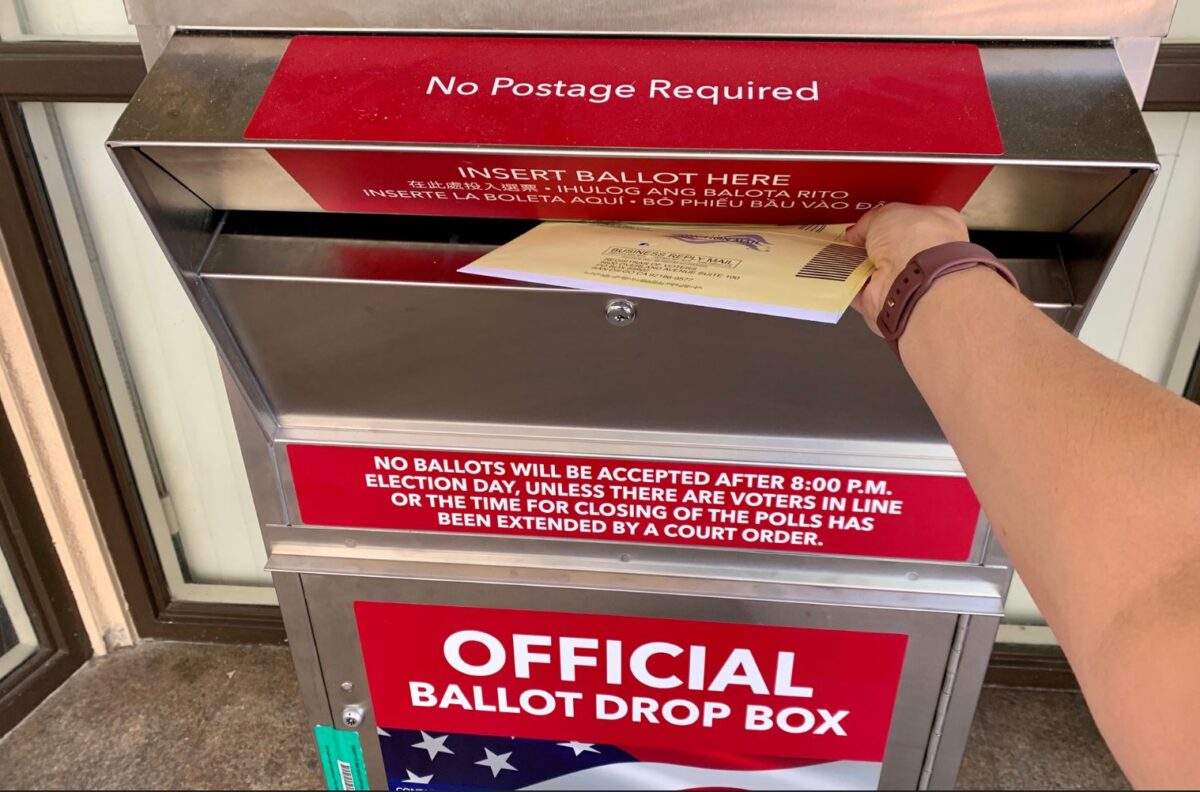Inside California’s Prop 50 battle: How everyday voters are redefining the rules of political power

California
When Darshan Smaaladen joined the “No Kings” rally in Orange County earlier this month, she wasn’t there to chant slogans or wave signs. The 52-year-old mother of three had something else in mind — votes.
A year ago, Smaaladen led a local campaign to recall two far-right members of her school board. Now, she’s turning that organizing energy toward California’s most talked-about ballot measure — Proposition 50. Backed by Governor Gavin Newsom, Prop 50 aims to redraw California’s congressional map in a way that could deliver up to five new Democratic seats in Congress.
“It’s about strategy, not noise,” she said. “Rallies are fine, but votes change the game.”
For many Californians, Tuesday’s one-issue special election feels like more than just another state vote. It’s a moment of political reckoning — a response to Republican-led redistricting in states like Texas, Missouri, and North Carolina that have tilted the electoral map to the right. Prop 50’s supporters argue it’s time for California to fight back using the same tools.
“What we’re doing is gerrymandering to stop gerrymandering,” said Los Angeles resident Adelaide Van Gessel as she left her Venice polling station with her dog, Guinness. “It’s not ideal, but this is the political reality we’re in.”
Under Prop 50, California’s Democratic leadership could temporarily sidestep the state’s independent redistricting commission and implement a new congressional map until 2030. After that, the commission’s authority would return. If the measure passes, Democrats could control as many as 48 of California’s 52 House seats — a potential game-changer in Washington, where Republicans currently hold a slim 219–213 majority.
Still, the proposal has stirred unease, even among loyal Democrats. Some see it as a dangerous precedent in a state that once prided itself on fair districting. “We can’t play the game like decent people anymore,” said Venice voter Stephanie Eberstein. “Those rules are gone. We have to do what it takes.”
Republicans, meanwhile, have framed Prop 50 as a cynical power grab. “It’s a waste of money and a betrayal of voters who wanted fairness,” said Kathy Brewer, a Rancho Santa Margarita resident. With just nine of the state’s 52 House seats currently in GOP hands, she fears losing what little representation remains.
But supporters argue that neutrality has its limits in a polarized era. “If one side brings a gun, you can’t show up with a knife,” said Aaron Leal, another Orange County voter. “This is about survival — for democracy, not just for Democrats.”
Governor Newsom and prominent Democrats, including Barack Obama and Alexandria Ocasio-Cortez, have poured millions into the campaign. On the other side, former Governor Arnold Schwarzenegger has lent his voice to the “No on 50” camp, warning that the initiative undermines the independent commission voters established years ago.
Despite the heated rhetoric, polling suggests Prop 50 is likely to pass. To many voters like Reina Santiago in Venice, it’s a reluctant but necessary move. “Someone has to push back,” she said. “If we don’t, Trump and his people will keep changing the rules, and we’ll just keep losing.”
As California heads to the polls, Prop 50 has become more than a question of political maps — it’s a test of how far one of America’s bluest states is willing to go to fight back in an era of partisan warfare.
FAQ Section
1. What is Proposition 50 about?
Prop 50 is a California ballot measure that allows the state’s Democratic leaders to temporarily redraw congressional maps, potentially adding up to five new Democratic-leaning districts.
2. Why is it controversial?
Critics say it undermines California’s independent redistricting process and sets a dangerous partisan precedent. Supporters argue it’s a necessary response to Republican gerrymandering in other states.
3. How long would Prop 50 last?
The new map would remain in effect until 2030, when the state’s independent redistricting commission would resume its role.
4. How could it impact national politics?
If passed, Prop 50 could help Democrats flip control of the U.S. House of Representatives in the next midterm elections.
5. When will results be announced?
Voting concludes Tuesday, with polls closing at 8 p.m. PT. Official results are expected within days.

